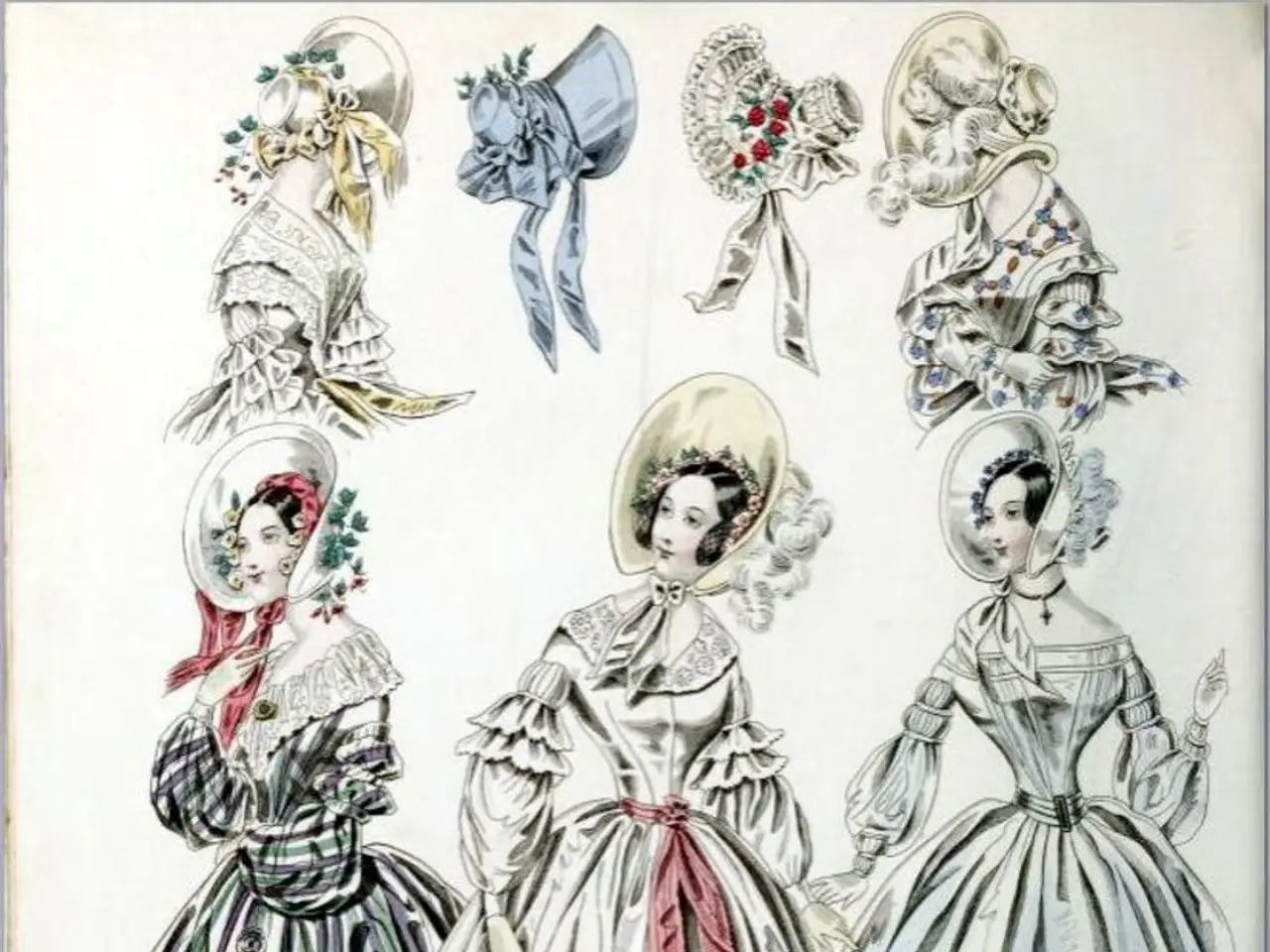Bergisch Gladbach has been transformed into a domain predominantly occupied by females.
In the heart of North Rhine-Westphalia, the town of Bergisch Gladbach has been recognised as one of the 52 locations in the 'FrauenOrte NRW' project. This initiative, led by the Women's Council NRW e.V., aims to honour 57 women personalities from various fields and regions in the state by the end of 2025.
At the forefront of this project are three remarkable women from Odenthal: Julie Zanders, Maria Zanders, and Olga Zanders, who made significant contributions to the paper manufacturer Zanders over two centuries.
Julie Zanders, the first of the Zanders women to lead the company, took the reins in 1831 and steered it until her death in 1869. She purchased the Gohrsmühle, which served as the main headquarters of the company until its end. Her successor, Maria Zanders, is particularly known for expanding the company through acquisitions and modernization. She led the company alone from 1870 until 1902.
Maria Zanders also founded the Altenberger-Dom-Verein in 1894, whose purpose was the renovation of the significant Simultankirche in the Bergisches Land. Moreover, she initiated the construction of Villa Zanders in 1873-1874 and was a patron of the arts, maintaining contacts with artists and founding a choir.
Olga Zanders managed to keep the company afloat during World War I and the depression of the 1920s. She led the company from 1915 to 1929, during which time it employed around 1500 people. She also founded a wedding grant for employees' children.
The three women have been honoured with a memorial plaque by the Women's Council NRW e.V. for their significant contributions. Jihane Qotit Zerhouni, board member of the Women's Council NRW e.V., stated that the project aims to contribute to equality by correcting the skewed perception that women have not made significant contributions to history.
Dr. Ulrich Soenius, director of the Rheinisch-Westfälisches Wirtschaftsarchiv zu Köln foundation, proposed the 'FrauenOrte NRW' project. He emphasised that the project aims to bring the three Bergisch Gladbach entrepreneurs back into public consciousness and emphasise the role of companies in history.
Mayor Frank Stein paid tribute to the life's work of the three women, stating that their determined action secured many people's jobs and livelihoods for many years. Judith Klaßen, the equal opportunities officer of the city of Bergisch Gladbach, emphasised that the Zanders women were pioneers who took on the responsibility of leading the company Zanders at a time when this was not common.
Tatjana Countess von Spee, born Zanders, represents the family in the board of trustees of the Zanders - Paper Historical Collection foundation and is the chairwoman of the Altenberger Dom-Verein, founded by Maria Zanders. She emphasised the lasting significance of Maria Zanders' work, stating that she created a place where art, music, and civic engagement came together and that this heritage continues to shape their house today.
The 'FrauenOrte NRW' project is funded by the Ministry for Children, Youth, Families, Equality, Refugees and Integration of the state of North Rhine-Westphalia and has Josefine Paul as its patron. By the end of 2025, a total of 34 site plaques ('FrauenOrte') are planned to be installed at respective locations across the state.







